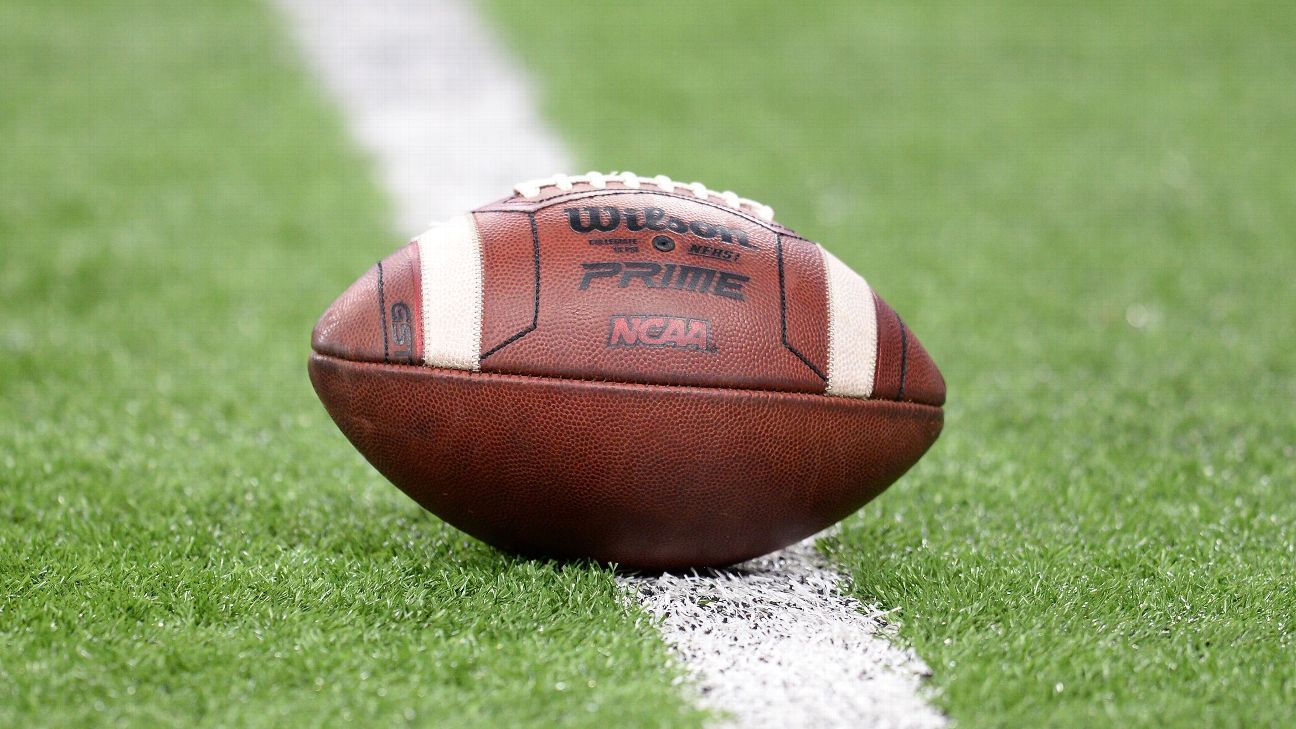Leaders throughout college athletics are considering appointing a chief operating officer of college football who would report to a proposed FBS football governing board, according to a lengthy letter from the LEAD1 Association obtained by ESPN.
The letter was sent this week to every Division I athletic director and eventually members of the NCAA’s Division I Transformation Committee, and the NCAA’s board of directors.
The proposal has been circulated at the highest levels of college football, including the 10 FBS commissioners and College Football Playoff executive director Bill Hancock, sources said.
The detailed recommendations for the sport’s future governance are the result of months of discussions, which began bubbling this past spring when some of the most prominent voices in college athletics, including Ohio State athletic director Gene Smith, advocated for college football to separate from the NCAA entirely.
Any momentum for that shifted in September, when an overwhelming majority of Division I athletic directors at the annual LEAD1 meetings expressed a strong preference to keep FBS football under the NCAA if can be more streamlined and less bureaucratic.
Following the strong consensus in its fall meeting, LEAD1, which represents the 131 athletic directors in the FBS, established a working group comprised of representatives from all 10 FBS conferences.
According to the group’s proposal, the FBS football governing board would primarily be comprised of people with significant football knowledge, and appointed by their conferences. There would also be a representative from the American Football Coaches Association, along with four independent directors, including at least two former student-athletes — a combination of unbiased people and those who have a players’ perspective, which the Knight Commission has separately been pushing for.
The FBS football governing board would “decide all matters related to FBS football” except for rules related to academics, financial aid and health and safety. While the board would oversee things like officiating, rules and possibly scheduling, many agree there are issues that should remain at the level of university presidents, and the NCAA would remain a legal shield.
The liability issues are at the crux of why most athletic leaders want college football to remain under the NCAA. The NCAA currently has a football oversight committee, but six of the 18 members represent the FCS, and many athletic directors lament they have different challenges that should be dealt with separately.
The COO would be a similar position to that of Dan Gavitt, who is the NCAA senior vice president of basketball. FBS football is currently the only collegiate sport that is governed by the NCAA but runs its own national championship, through the CFP. The NCAA deals with issues such as rules, officiating, concussion litigation and enforcement, but doesn’t have a person like Gavitt at the table when significant decisions about the sport are made. This proposed position would also be on the NCAA president’s leadership team/cabinet.
While LEAD1 doesn’t have the authority to implement any of the recommendations, it’s another step toward changing how the sport of college football is governed as the NCAA undergoes sweeping changes to its own organization, and more power shifts to the individual conferences. The proposal also pushes for NFL to provide financial support, arguing “the NFL reaps the benefits of FBS football serving as its farm system without providing any financial support (and other resources) to the NCAA.”
It’s likely to take weeks to gather feedback, and the proposal would ultimately have to be approved by the Division I board of directors. While there could be some pushback to the plan, there could also be some who want to wait until the NCAA names a president to replace Mark Emmert before making such drastic changes to the sport’s structure. It’s also unclear who needs to vote to officially approve it, as there are differing legal opinions, according to sources.
According to the letter, “Failing implementation of these recommendations, our FBS ADs are in favor of examining options for such decision-making outside of the NCAA.”
